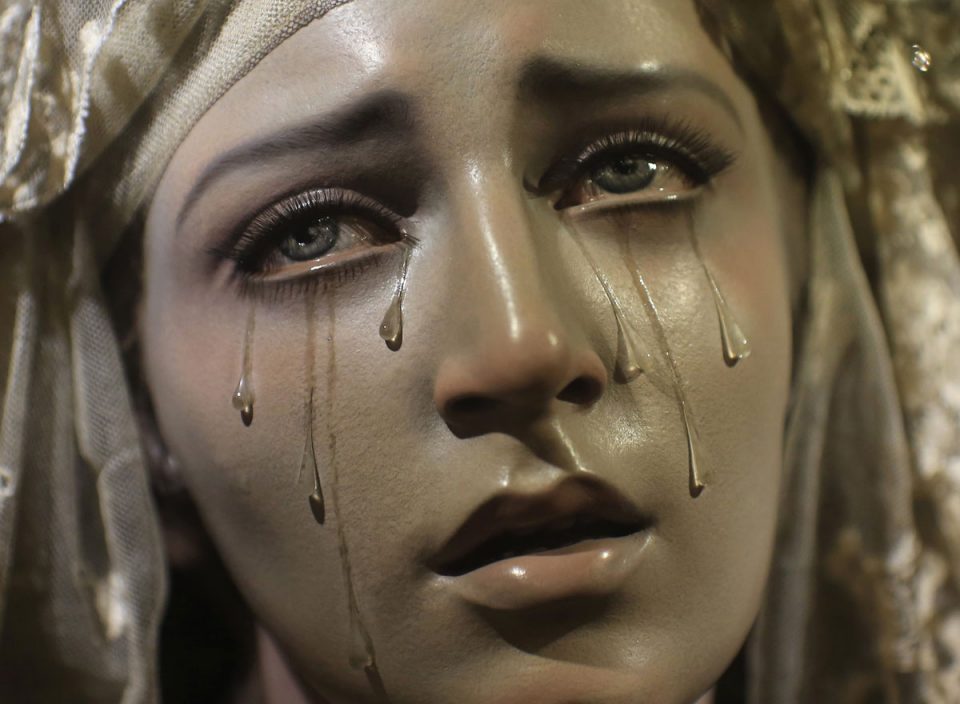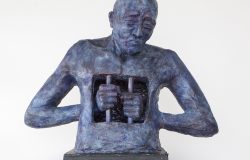“I’ve learned, the hard way, that some poems don’t rhyme, and some stories don’t have a clear beginning, middle, and end. Life is about not knowing, having to change, taking the moment and making the best of it, without knowing what’s going to happen next. Delicious Ambiguity”
Gilda Radner
At all times loss surrounds us. We don’t always notice it though. People move to new homes, welcome babies to the world, get awarded promotions, graduate from school: no matter how welcome the change there is still the spectre of loss lurking in the background. Loss becomes more apparent at times when the change is not wanted: deteriorating health, unplanned job loss or the death of a loved one. These are seldom the goals we seek for life or add to our bucket lists.
The ending of things heralds the start of something new. Before we can play host to the beginning of things we can, at times, be held hostage to the memories of our past and the meaning it has had for our lives. It’s hard to embrace the new story life has waiting for us if we don’t feel quite ready to leave the narrative we currently live and potentially enjoy and feel secure within.
Our current narrative identity is created through the reconstructed stories of our past and the imagined stories we have of our future. When the stories we had fantasised for our future are no longer possible because that job is not ours, or that relationship no longer exists, or our health may have altered or a loved one is permanently taken from our lives, then we must begin the arduous work of deconstructing those imagined futures.
We have to re-cast our imagined future lives with ourselves playing a new character. Depending on the nature of loss we may have to find an entirely new view of the world and meaning of life. We also have to re-establish existing relationships as a result of this transformation of identity. We have to construct a new belief system to make the world a place that is now habitable for ourselves and this new baggage of grief that we must haul through life like Sherpas of Loss.
Each of us is working through some form of loss at any stage of life – loss of status, safety, certainty, health, love, self-worth. Loss is the equaliser for humanity. The loss of self-worth for a beggar on the streets of Jaipur is not too different to the downward spiral experienced by an abdicating King. The grief of a parent which pours forth over the body of their child runs fast no matter the colour of the child’s skin, the age of that child, the faith of that family. Loss is loss and we all get our dose of it in a lifetime.
Loss and grief show up when the bonds we have formed around our lives are broken or changed. When uninvited loss interrupts our narrative we sometimes start the difficult process of looking for the causality of events. If we have been raised in a culture that teaches that there are right ways and wrong ways for things to unfold; that some events are good and some are bad, we can default to searching for blame and retribution.
However, some things just are. They can be neither good nor bad; or indeed both good and bad. It might serve us better to ask some questions that move us out of the realm of causality. Asking, “Where is this experience taking me?” or “Who might I become if I follow this path?” or “What can I now release as a result of not being enmeshed in my old story?” Loss might be life’s way of transmuting us into a better form living a more useful narrative.
Loss and its companion the transformation of self, can ultimately lead us to a greater potential for expressing our humanity. Keeping ourselves open to the tears of life enables us to hear the cries of all who suffer. Remaining vulnerable keeps us caring and human. The situation of suffering we endure dissolves a part of who we are and forms us in a new way. We get to choose how that reformation happens – we need to allow life to form us into the best version possible and available to us. Yielding to the moment at hand and what it may be asking of us is the courage that’s required.
The respected loss specialist Susan A. Berger identified five ways of grieving, which we all, to some extent, practice as we learn to live with different forms of loss. Berger describes one practice as The Nomads – those who have not yet found a way to resolve their grief and cannot yet make sense of the loss that has affected their lives. Then there are The Memorialists who are committed to preserving the memory of what was lost. The Normalisers put their energy into re-creating a sense of family and community in spite of (and because of) the loss. The Activists focus on helping others experiencing similar loss – they create support groups and blog sites and services that bring succour to others. Then there are The Seekers who adopt or expand their religious, philosophical and spiritual beliefs to create new meaning in their lives.
The beauty in Susan Berger’s work is that we can choose which way we need to identify our loss, and this may alter over time. These typologies go beyond the traditional Kubler-Ross stages of grief and provide us with archetypal roles the grieving can assume. There is some comfort in knowing others have tread a similar path before us and found solace for their loss through these identities.
Loss asks you to re-evaluate how you see yourself in relation to others and the world. Given the right time and space, loss can transform us. Our perspective of life can be revived with a renewed sense of identity and purpose previously unrecognised. Loss can give us courage to use our time more thoughtfully and more purposefully. Our appetite to take risks can expand and in so doing our sense of being can evolve and mature.
Once we have overcome the crippling emotional pain of loss our discombobulated thoughts start to normalise and we can begin the process of adjusting our lives to new and changed routines. Joan Didion, the American literary genius, endured the two-fold blow of losing her husband and, within months, her daughter. As a writer she made sense of her feelings through words writing the poignantly beautiful books, ‘The Year of Magical Thinking’, and, ‘Blue Nights’. In ‘The Year of Magical Thinking’ she writes, “…when we mourn our losses we also mourn, for better or for worse, ourselves, as we were, as we are no longer, as we will one day not be at all.”
As we move forward with our grief we can become fearful of what is still to be lost in life. We can also be evolved into seeing what more may come – things beyond our imagination. At the end of the day our losses are our own and the sense we make from them are entirely of our own making. We can choose to be angry and bitter for what feels like the injustice of a loss. We can allow it to strip our lives of meaning making us like apparitions moving through the processes of life. Or we can be patient and allow life to deliver to us its new meaning and identity. When we can invite this in then we are ready to step forward into our new narrative.







Each time I read one of your offerings I feel like my eyes and mind open a little more to change and acceptance of life’s moments.
Thanks for all your offerings, they are beautiful to read and reflect on.
Thank you. Look out for the soon-to-be published book!